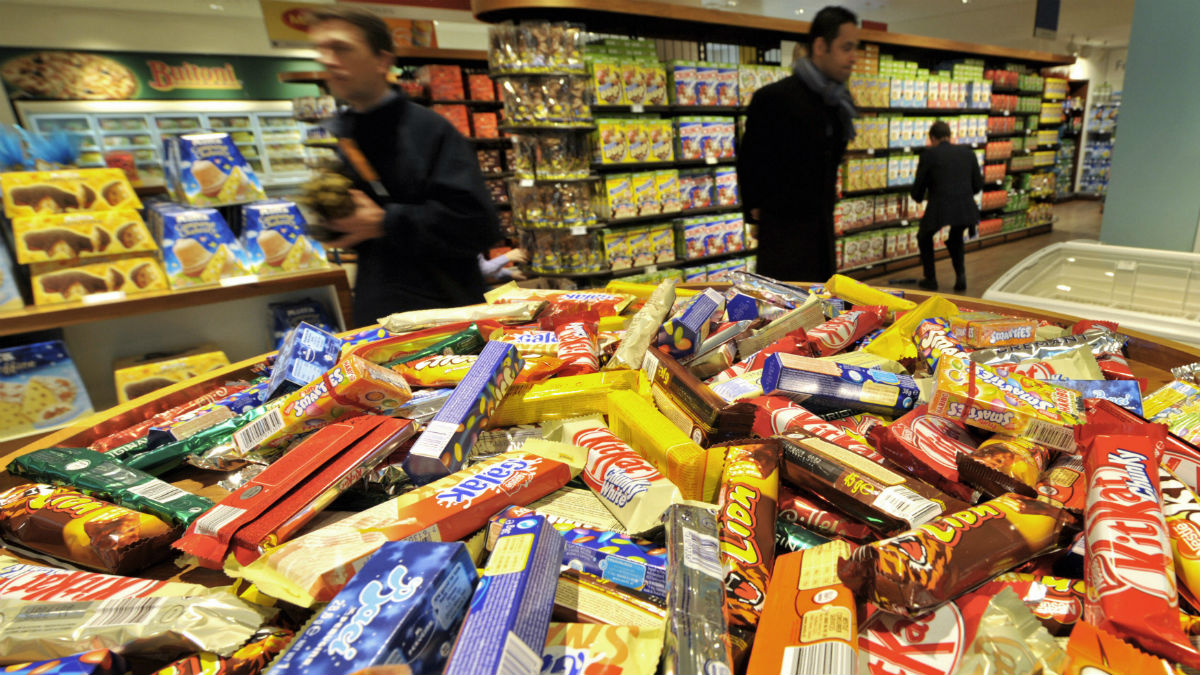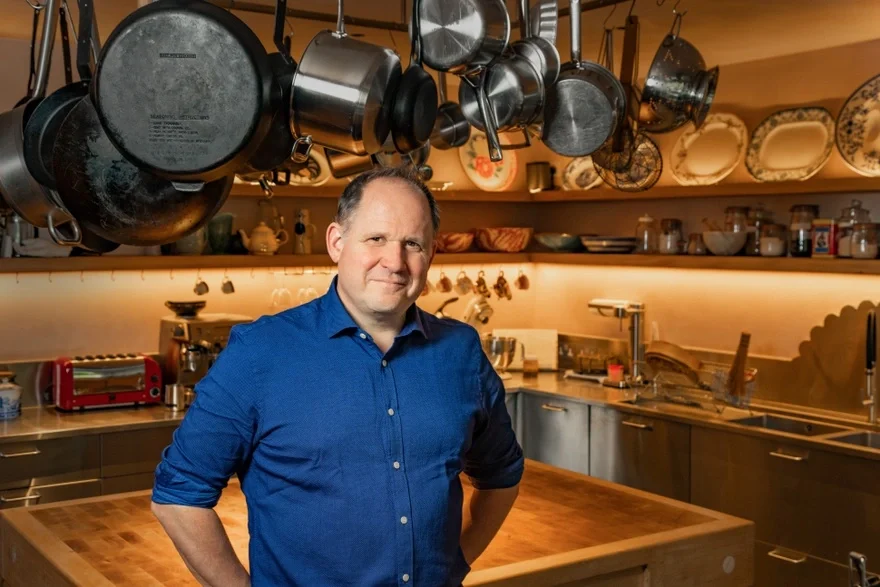UK
Henry Dimbleby's National Food Strategy calls for world-first tax on sugar and salt
Henry Dimbleby's National Food Strategy has recommended that the government introduces a world-first sugar and salt reformation tax in a bid to improve the nation's health.
The report, published today, has suggested a £3/kg levy on sugar and a £6/kg tax on salt sold for use in processed food or in restaurants and catering businesses. Some of the proceeds from the tax would be used to increase the number of free school meals and help low-income families access fruit and vegetables.
It also called for an overhaul of food education, including the return of the food A-level, which was axed in 2016, and sensory food education in nursery and reception classes, which has been shown to increase children's willingness to try fruit and vegetables.
It said the Department for Education should conduct a qualification review to ensure that existing and new qualifications, such as T-levels in science and catering, provide an adequate focus on food and nutrition and a progression route for students after GCSEs – particularly in light of the post-Brexit skills shortage in hospitality.
Dimbleby, a co-founder of Leon, was commissioned to write the report by the government in 2019. It is the first major review of the UK food system for 75 years. It also suggested that all food companies with more than 250 employees, including those in hospitality and contract catering, publish an annual report on their sales of healthy and unhealthy foods. This could be broken down into food and drink high in fat, sugar, salt (HFSS), sales of protein by type, and fruit and vegetables.
The report, which can be read here, also recommended the government accelerate the roll-out of a new procurement scheme being trialled in south-west England in which local food suppliers can sell their produce via an online procurement page "to encourage caterers to try a broader range of suppliers".
Dimbleby said Covid-19 had been a "painful reality check", with the country's high obesity rate a major factor in the high death rate.
"We must now seize the moment to build a better food system for our children and grandchildren," he said.
The government now has six months to respond to the report.
UKHospitality chief executive Kate Nicholls said the National Food Strategy represented "an opportunity to identify and tackle the challenges facing hospitality, as well as wider society and the world", welcoming the report's emphasis on food skills being taught in schools.
However, she added that initiatives to improve healthy eating should be "taken at a pace that recognises the dire state of the sector as it looks to recover from the Covid crisis", with "appropriate consultation, so that we can best achieve lasting improvements collaboratively and without damaging recovery".
Tom Kerridge, chef-owner of venues including the two-Michelin-starred Hand & Flowers, one-Michelin-starred Coach, and the Butcher's Tap, all in Marlow, Buckinghamshire, said: "The Dimbleby report has worked through an incredibly complex landscape and resulted in a set of comprehensive, eminently workable recommendations that are practical and will have a direct impact on our lives.
"I take great heart in several recommendations that particularly resonate and relish the opportunity to see a new generation of children given the opportunity to learn to cook. A fundamental skill no child should be without. I applaud the findings and recommendations of the report."
Bill Granger, the restaurateur behind Granger & Co, added: "We all hate the idea of anyone telling us what to eat, and it never ever works. But simple measures like a sugar and salt tax that reflects the true cost of these foods will help us as food producers to look at our recipes and adjust them with more sustainable and healthier alternatives."
Chef Jamie Oliver added: "This is no time for half-hearted measures. If both government and businesses are willing to take bold action and prioritise the public's health, then we have an incredible opportunity to create a much fairer and more sustainable food system for all families."
Sugar and salt tax: the strategy to break ‘junk food cycle’
Proposed new levy triggers concerns about how food price increases will impact families
THE WEEK STAFF
15 JUL 2021

An independent review of food consumption and production has proposed the world’s first taxes on sugar and salt.
Does Britain need a snack tax?
Is your diet killing you?
Led by businessman Henry Dimbleby, the government-commissioned National Food Strategy aims to break the “junk food cycle”. The newly published proposals also plans for a 30% cut in meat consumption, and for vegetables to be prescribed by the NHS.
In the second of two reports, Dimbleby - a co-founder of the Leon restaurant chain - said the food system is a “logistical miracle, full of amazing, inventive people” but the food we eat “is doing terrible damage to our planet and to our health”.
He also warned that the way food is consumed is putting “intolerable strain” on the NHS. In England alone, poor diet contributes to 64,000 deaths a year and costs the economy £74bn.
But while money raised by the levy could be spent on addressing the inequalities around food, there are also concerns that the “snack tax” could increase UK families’ shopping bills by a total of up to £3.4bn a year, LBC reports.
What the review says
The National Food Strategy project is the first independent review of England’s food system in 75 years, The Big Issue reports. It’s hoped that the food strategy will “transform the way England produces, sources and consumes food in a bid to cut down on poverty and improve health across the country, as well as maintaining UK food standards after Brexit”.
A levy of £3 a kilo on sugar and £6 a kilo on salt sold wholesale for use in processed food, restaurants and catering is the review’s “most eye-catching recommendation”, The Guardian says. The proposed levy could put 1p on a bag of crisps and 7p on a Mars bar, but would “hit the poorest consumers hardest”, the paper adds.
Key recommendations also include trialling a scheme to let GPs prescribe fruit and vegetables to patients who are “food insecure” or suffering from the effects of poor diet.
The government has promised to respond with proposals for future laws within six months, the BBC reports.
And the reaction
Celebrity chef Jamie Oliver has backed the campaign, arguing that “this is no time for half-hearted measures”. He added: “If both government and businesses are willing to take bold action and prioritise the public’s health, then we have an incredible opportunity to create a much fairer and more sustainable food system for all families.”
Dimbleby says that the taxes raised could extend free school meal provision and support better diets among the poorest. However, industry officials have warned that new taxes could increase the price of food, the BBC reports.
Ian Wright, chief executive of the Food and Drink Federation, said: “Obesity and food is very much about poverty. We need measures to tackle poverty and to help people make the choices that they need to make. Telling them what to do is rarely a good idea. Consumers, by and large, resent being told what to do.
“One of the big problems about a tax in this way is the suggestion that it will be hypothecated to good acts like school meals, like prescribing vegetables. The Treasury never, ever allows that to happen.”
Andrew Burton, owner of the Mannion & Co cafe in York, is also unconvinced the idea will work. He told Sky News: “We’ve looked at everything we do, we have reduced salt, we have reduced sugar, but there’s only so far you can go before someone says, ‘that’s bland, can we have the salt, can we have the sugar’, and they just put it on themselves.”
Could the government reject the plan?
As part of a “once-in-a-lifetime opportunity” to break Britain’s addiction to junk food, ministers are being urged to levy a £3bn sugar and salt tax. But is there any chance of the government accepting its central recommendation? “It does not sound like it,” The Guardian says.
During an interview this morning, Communities Secretary Robert Jenrick was challenged by LBC’s Nick Ferrari, who asked: “How is it levelling up to put an additional £180 on a family’s shopping bill, adding 87p to a packet of Frosties?”
Jenrick replied that it “isn’t the government’s policy” and it was an “independent report”. LBC host Ferrari then asked if this meant the report had been “rejected” by ministers, with Jenrick answering that they had “only received it this morning”.
According to Politico London Playbook’s Alex Wickham, a government insider said they were not considering implementing “Dimbers’ jam tax”.
Meanwhile. Dimbleby told the FT that “this is not a wish list of ideas that we hope might help” and that “these are concrete proposals for immediate action, which we have explored in depth and are confident will work”.
Unfortunately for him though, “there was a chorus of angry voices in government and across the Tory Party last night insisting that his top line recommendations would be rejected and were considered completely unworkable by ministers”, says Wickham.
Link between obesity and Covid
Research published in April 2020 found that obesity may play a significant factor in the severity of coronavirus symptoms.
Scientists from Edinburgh and Liverpool universities and Imperial College London analysed data from 15,100 coronavirus patients across the UK to draw up a profile of how the virus “exploits” age, sex and underlying health conditions. The research findings suggested that one of the most important risk factors is being overweight.
Dimbleby says that Covid has been a “painful reality check” and “our high obesity rate has been a major factor in the UK’s tragically high death rate”. He has urged ministers to “seize the moment to build a better food system for our children and grandchildren”.

No comments:
Post a Comment